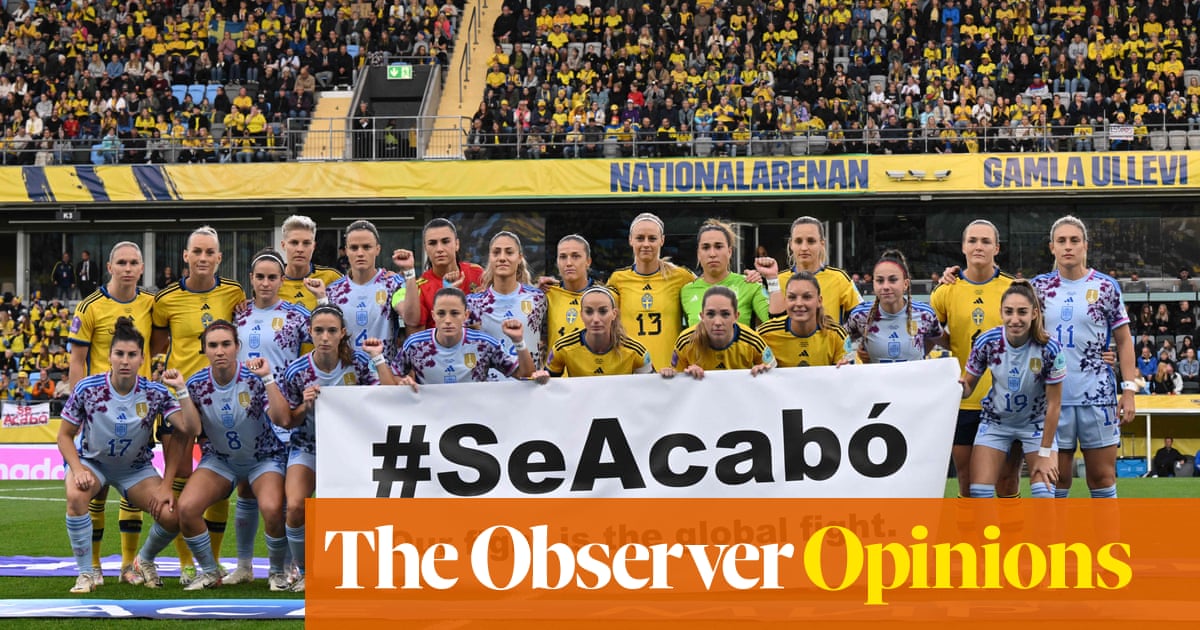
Iwas 13 when Pokémon cards exploded on to the UK scene in 1999. I tried to be too cool and mature for the instantly popular collectables, born from the blockbusting video game. I hid my starter pack from friends and played with my younger sister and cousins. I was just humouring my relatives – that was the line anyway. But I would watch the animated series or play Pokémon Blue on my Game Boy Color in our council flat, away from the critical eyes of teenage friends.
Short for Pocket Monsters, Pokémon was first launched on the Nintendo Game Boy in 1996. Players became Pokémon trainers, tasked with travelling through a fictional world to collect, develop and evolve the 151 original Pokémon, battling them, and competing in eight gyms to earn badges that would give them the right to compete in the Pokémon League and bid to become a Pokémon Champion.
At the start of each edition of the game, trainers pick their first Pokémon, a friend to join them on their journey and always be at their side. Much like Philip Pullman’s His Dark Materials series of books, where each person in heroine Lyra Belacqua’s world is accompanied by a dæmon (a physical representation of their inner-self in the form of an animal), Pokémon tapped into every child’s desire for an unquestioning friendship, for a confidante that was always there. Who does Harry Potter talk to when he’s alone in Privet Drive? His owl, Hedwig. Who is Dennis the Menace’s constant companion? His dog, Gnasher. Every young fan has dreamed of having their own Pokémon and among the original 151 there were personalities to meet all tastes and needs. Pokémon became a huge industry. The cartoon series was followed by films, newer and more complex iterations of the video games were developed, toys and accessories boomed, and the Trading Card Game (TCG) expanded.
In 2004 the first World Championships were held in Orlando, Florida, allowing fans from around the world to come together and compete in three age groups for the title of TCG World Champion. In 2009 a video game championship (VGC) category was added, and from 2016 players could compete in the fighting games Pokkén Tournament and Pokkén Tournament DX.
This year, after a two-year hiatus due to Covid, the World Championships were back. Held at London’s ExCel centre – their first time outside the US and Canada – they featured an expanded roster including the augmented-reality game Pokémon Go and multiplayer game Pokémon Unite. There was a vast pop-up store, a dedicated card trading area and every underground station on the route was plastered in Pokémon advertising and video screens.
Pokémon was also back on my radar 23 years on: my son is well and truly hooked. Cards are seemingly being traded on the junior black market of the school playground with the same ferocity I had seen when the franchise first launched. The numbers back this up. The Pokémon Company is experiencing an incredible resurgence in every arena in which it operates. In the financial year ending February 2022 the company recorded its best year in its 26-year history, pulling in $1.6bn in sales and making an operating profit of $460m (up 115% on the previous year).
The market for rare and early cards and other merchandise is booming. Content creators have swamped in, looking to capitalise on the increased appetite for the franchise. All over YouTube and TikTok, there are videos of influencers opening packs of cards in the hope that rare ones will be “pulled”.
In April, controversial YouTuber Logan Paul broke the record for the most expensive Pokémon trading card sold at a private sale when he bought the rare Illustrator Pikachu card, graded a virtually perfect “Gem Mint 10” by the Professional Sports Authenticator (PSA), for a staggering $5.275m. Meanwhile, a first edition shadowless 1999 pristine Charizard sold for $420,000 in March.
In April 2021, PSA was forced to pause to get a handle on the backlog of Pokémon cards being sent to them. The authenticators had more than a million cards submitted in 2020 and in 2021 reached that number inside the first three months.
The World Championships at the ExCel centre – a venue more used to hosting arms fairs, cruise expos and property shows – buzzed with energy and colour. Almost 5,000 registered competitors were battling for a share of the $1m prize pot, with another 4,000 spectators looking on. Outside, fans could grab a wristband for a timed slot in the Pokémon Worlds Square where they rotated around free stands, customising bandanas and Pokémon cards, getting their faces painted, picking up themed snacks and drinks. You could get a picture taken with Pikachu and Eevee and receive a free print (a far cry from the theme park photos that extract extra cash from you after charging an arm and a leg for entry). Areas designated for trading cards thronged as prospective traders thumbed through binders of hundreds of cards.
Inside, a host of side events dominated the huge hall where fans (spectators or competitors) could sign up to compete in mini tournaments, winning Pokémon cards and other prizes. The organisers had underestimated the demand for event-exclusive merchandise, with the crown jewel, a soft toy Pikachu in a beefeater costume, selling out before midday on each of the five days of the championships.
Those glued to Pokémon Go on their phones could take advantage of the huge number of raid battles nearby to collectively defeat and catch a legendary Pokémon or a digital version of the costumed Pikachu that may have eluded them in the huge Pokémon Centre store. For five days at least, the passion of the fanbase for this franchise was matched by the franchise’s passion for its fanbase.
Pokémon never went away, but it seems to be at a peak again. According to TitleMax, it is the highest grossing media franchise of all time with a total revenue of more than $100bn, beating Marvel, Hello Kitty and Mickey Mouse and Friends. Next year the Championships will go home, with Yokohama hosting. I won’t tune in though, I’m back to being too cool – or am I? Alright, maybe I’ve been browsing online for a first edition base set Pikachu card. The secret to the success of Pokémon is that it is constantly evolving, embracing new technologies and audiences while respecting the formats and fans that got it to where it is. It doesn’t always get things right, but it always keeps us on the journey.












